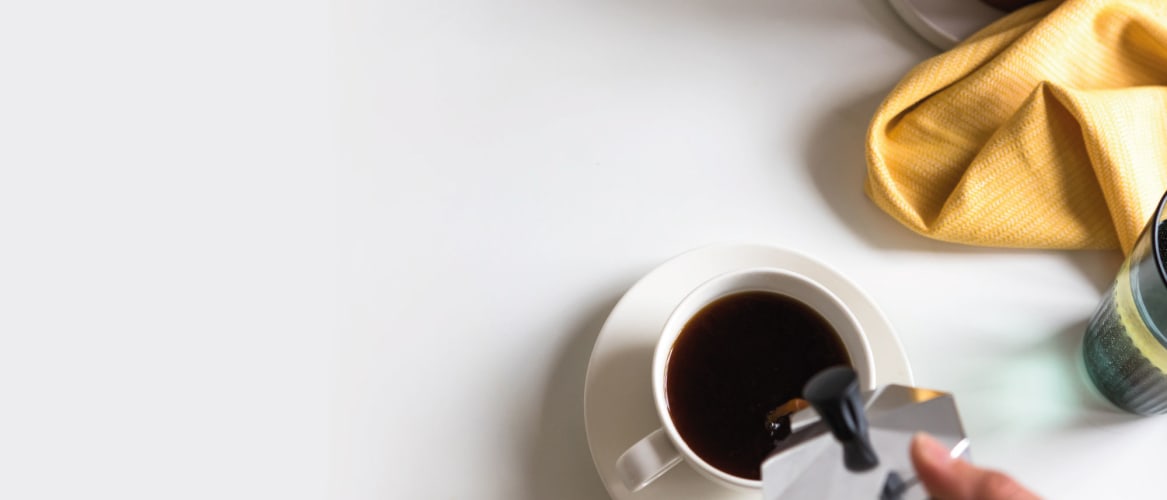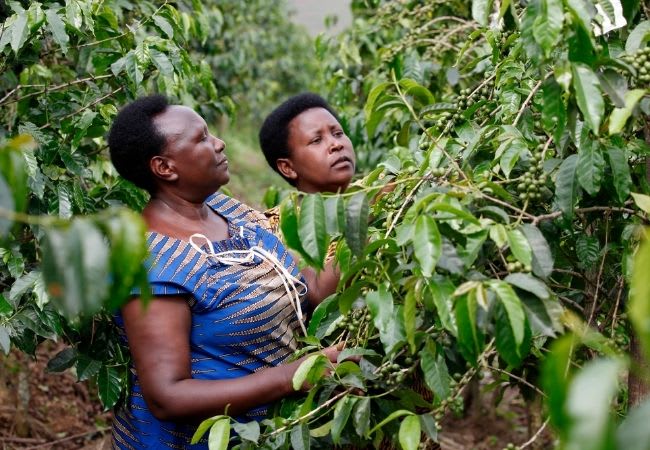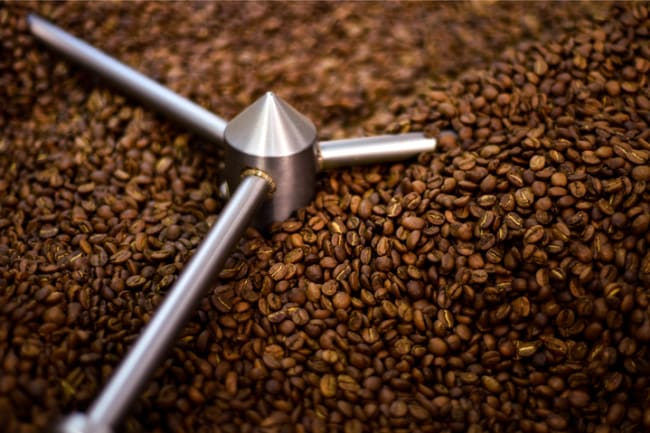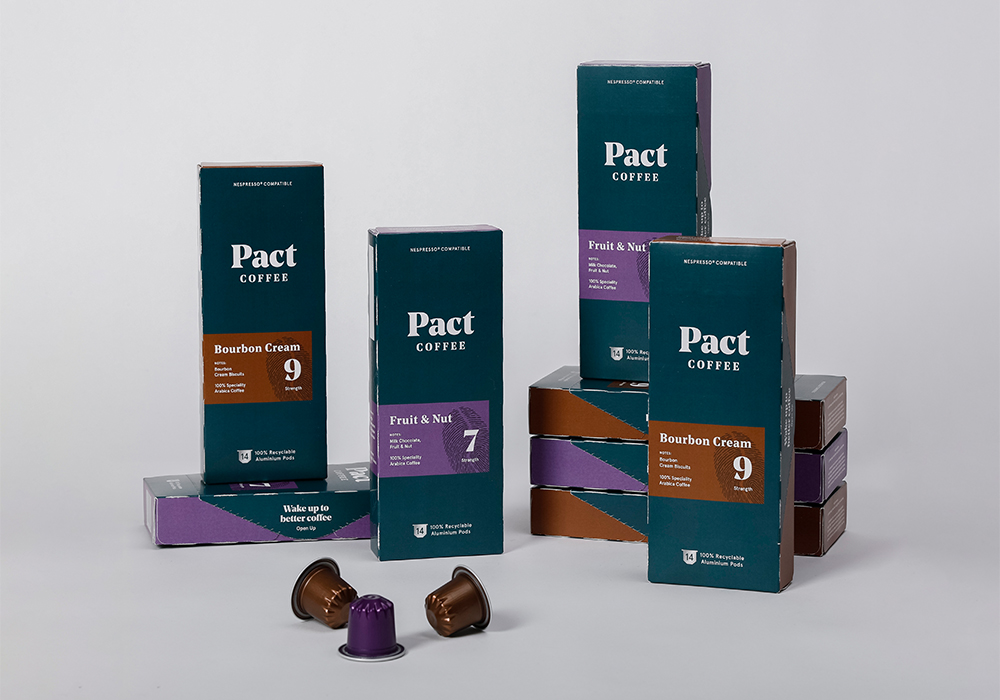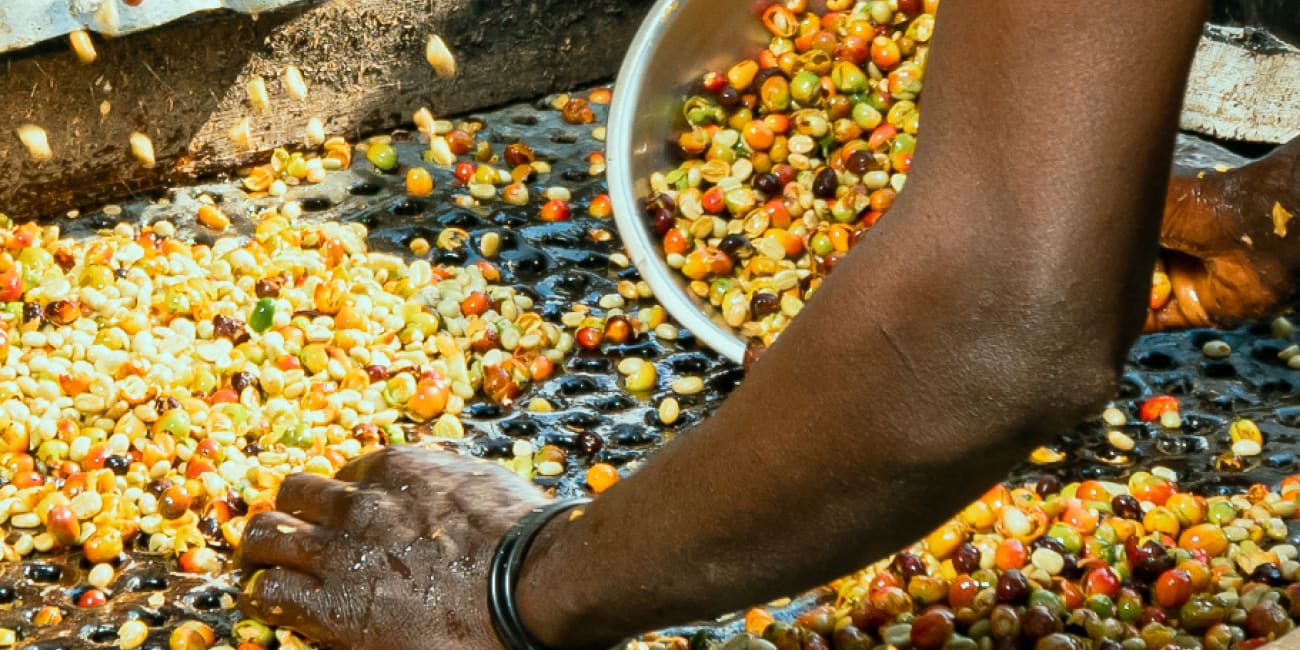Now and then, a coffee hits the news - usually because it’s been dubbed the ‘most expensive in the world’. Cue the cries of “who on earth would pay that for a latte?” - and hey, we get it.
But there are a few things at play here. One is the cultural categorisation of coffee as a household item. A cupboard-filling, shelf-stocking everyday item - like rice, bread, kitchen roll… something you wouldn’t necessarily want to pay a lot for.
That’s not great… because it keeps farmers earning less - as the market value of coffee stays low. But it also means when a big story hits about £100 per cup of coffee, people misunderstand just why it’s that expensive. And it’s not always for a good reason.
So, what is the most expensive cup of coffee?
Price per cup of some of the ‘most expensive coffees’
- Kopi Luwak: £28-60 per cup
- Black Ivory: £38 per cup
- Elida Geisha Natural: £28 per cup
- St. Helena: approx. £10 per cup
- Pact Coffee Micro-lot: 66p per cup
(Approximate price if brewed at home, using 16g per cup - some prices may have changed)
There’s a lot that can inflate the price of a coffee. Maybe it’s produced in a strange, obscure way that means quantities are low (like having cherries pass… through various animals). Or the country it’s from purposefully restricts it being exported. It could be a rare variety, or a one with a particularly good reputation.
But a lot of that high price is often going to the buyers, mills, exporters, importers, shipping companies, packagers, sellers and others involved - pushing the price higher, and pushing the farmers’ profits lower. That’s why, at Pact Coffee, we always buy direct from the farmer. So you get truly world-class, industry-leading coffees at a good price for you, and a price that’s above the Fairtrade base rate for the farmer.
1. Kopi Luwak
Also unflatteringly (or matter-of-factly?) referred to as ‘cat shXt coffee’, this can be the priciest option on the list. It’s produced when civets eat coffee cherries, and an unlucky soul harvests the partially digested beans left behind in their dung. Tasty… It’s claimed it actually is pretty delicious, thanks to the chemical processes that go on, but its popularity has led to some pretty unethical practices.
Described as the “foie gras” of coffee, it’s not uncommon for civets to be force-fed coffee cherries to increase the volumes of Kopi Luwak produced - and that’s pretty indefensible. Our verdict? Not worth the hype, and not worth the risk of participating in or encouraging inhuman treatment of animals.
2. Black Ivory
Another one that’s not for you if you’re a little bit squeamish, or a fan of hand sanitiser at the best of times… Black Ivory Coffee is a similar concept to Kopi Luwak - arguably sans animal cruelty. Produced by a company in Thailand, this coffee is actually made specifically for the benefit of elephants - as the proceeds go to promoting their wellbeing.
No force-feeding - but the best cherries are mixed in with the elephants’ favourite food, and they pass through them over the period of 12 to 72 hours. They only produce a small amount, so sell it at a high price to Michelin restaurants and 5 star hotels. The money’s used to educate about the plight of wild elephants, and about human-elephant conflict - as well as providing a source of income to elephant-caring families.
3. Elida Geisha Natural
Remember that news story in 2019 about the $75 cup of coffee? Well, it has a name. The Panama-grown beans were bought at auction for $803 per pound - partly for its supposed quality, partly because there was only 100 pounds available worldwide (that’s not a lot), and partly because it’s of the Geisha variety.
Geishas are a whole kettle of fish in their own right. Highly sought after, the coffee originated in Ethiopia and re-emerged in Central/South America -winning the Best of Panama competitioni n 2004, and elevating the variety to legend status. It’s very highly thought of for its unique flavour characteristics and quality, which is sometimes warranted - though not always. It’s worth bearing in mind that sometimes ‘hype’ is self-perpetuating.
4. St. Helena
This is a bit of a historical one… St. Helena, a remote island in the South Atlantic Ocean, is famous for being where Napoleon Bonaparte was exiled to, and subsequently died! Years before that, coffee was introduced to the island - of the Bourbon variety - and its unique geography has led to it being of interest to the speciality crowd.
Its exclusivity has a lot to do with its high price - as it’s a small island with just a few sellers - but a recommendation from Napoleon doesn’t hurt either… apparently he said the coffee was the best thing about the island!
5. Pact Coffee Micro-lots
There may not be trending articles about our coffee. But let’s be real. Coffee from our Micro-lot range always scores at least 86/100 when scored by coffee experts, in line with Speciality Coffee Association standards. It’s also treated with the utmost care and consideration at every stage - from picking, to processing, to roasting. And it’s just 66p per cup. Incredible coffee doesn’t have to cost the earth, because prices are usually inflated due to surprising popularity, artificially limited crops, or gimmicks. At Pact, we don’t need to do any of that.
